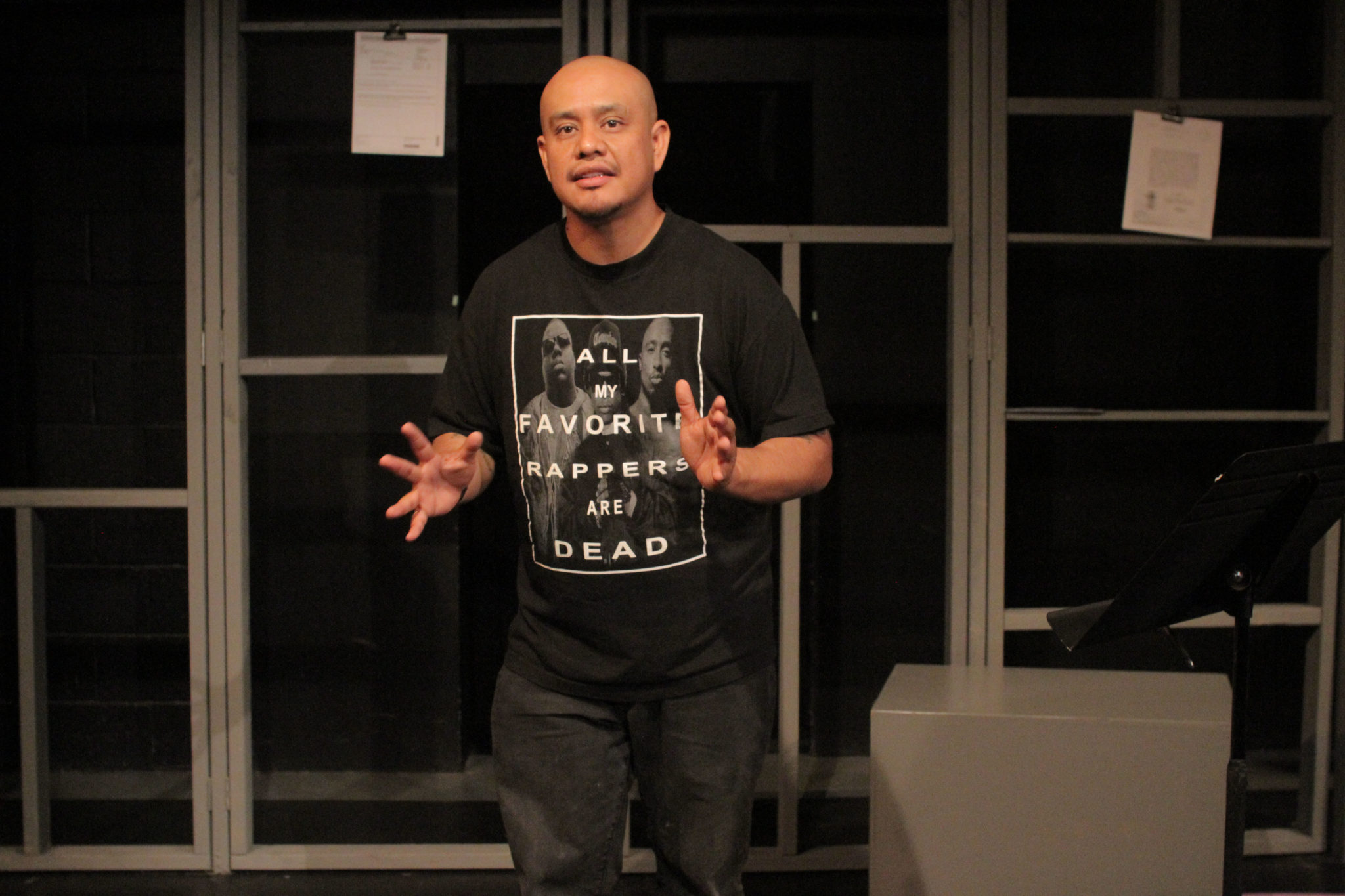
Youthana Yuos
If you’ve walked past the Yale Repertory Theater, you will have seen the posters for its newest feature: “WET: A DACAmented Journey.” The piece asks what it means to be an American by exploring protagonist Anner Cividanis’ experience as an undocumented immigrant navigating the confusing world of DACA. This timely performance, directed by Brisa Muñoz, chronicles the desperation one man feels against the horrors of the U.S. immigration system as he’s forced to confront the unfaceable: the perpetual fear of being forcibly removed from Los Angeles, the only home he knows.
WKND speaks to writer and performer Alex Alpharaoh, who put his own story under the spotlight for this play.
Q: We know the production is inspired by your own experience with DACA — how much of the plot is directly your story? And how much is influenced by the narratives of others?
A: The majority, if not all, of the plot is based on my life and real events that occurred. The influences of others is reflected in the epilogue of the play. The actual story is not influenced by any other narratives other than the stories shared by members of my family who lived it.
Q: When did this project begin? Was it intentionally timed with Trump’s presidency and policies?
A: This project was first read on stage in early February 2017. It was further developed throughout the year and world premiered in Los Angeles in August 2017 at Ensemble Studio Theatre Los Angeles. It was not intentionally timed with the 45th’s presidency. It was not a response to his policies but rather, a reflection of the real human lives that could and eventually would be affected by them. Since its premiere, the show itself has changed and grown in the structure of the storytelling. The message remains the same: People living in the United States without proper documentation are not illegal or aliens. We are human beings that, if granted the opportunity to correct the civil matter pertaining to living in the country without proper documentation, we would be more than happy to do so.
Q: Any artistic piece about immigration in today’s climate will inherently be political, but was being political your intention?
A: Not at all. I didn’t write “WET: A DACAmented Journey” to be a political statement. If it has become a political statement, it has done so outside of me. I wrote the play because I needed to process the PTSD that I was suffering from upon my return. It was extremely difficult to leave the only country I have ever known to be my home and risk not being able to come back. If I would have been denied re-entry, it would have been devastating. There would be no show. I would be thousands of miles away from my family, my daughter, my career, my life. Where one is born should not limit one to where and how one lives.
Q: In sharing your story — and, by extension, the stories of those who have had a similar journey — do you see yourself as an activist?
A: Absolutely not. I have too much respect for real activists. People that have and continue to spend their life energies on organizing, rallying and being on the front lines of not just this, but other movements that are finding injustices for all marginalized people in the country. I am simply an artist, sharing my story with the hope that it may create opportunities for more open dialogue. I hope that people will take a moment to see the humanity of a very politicized issue.
Q: What do you hope the audience will gain?
A: Compassion for their fellow (Wo)man/Human being whom we share a planet with. I hope people take a moment that I, Alex, am NOT my circumstance. I hope people choose love over fear when they think and speak about immigration policy and reform in the United States.
***
“WET: A DACAmented Journey” is part of the Yale Repertory Theatre’s 2018–19 No Boundaries performance series. It will be on stage at Iseman Theater from Dec. 13–15, 2018. Each performance runs for approximately 90 minutes with no intermission, followed by talkbacks.
Hana Davis | hana.davis@yale.edu .







